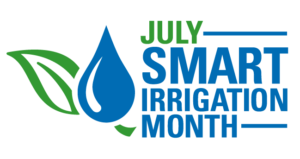Articles
When freezing temperatures are expected during winter, most landscape irrigation systems should be winterized. This helps conserve water and can help protect the irrigation system from damaging winter conditions. Winterizing is the process of preparing an irrigation system for winter weather and can help avoid costly repairs in the spring. For most of Texas you…
Read MoreKEEP WATER OFF SIDEWALKS Aim automatic sprinkler heads to hit the lawn and not the sidewalk. Water less to reduce runoff. Clean sidewalks and driveways with a broom instead of a hose. SET AUTOMATIC SPRINKLERS TO SAVE Set automatic sprinklers to water twice per week (or less) no more than 30 minutes per day (when…
Read MoreDo You Know Where Your Isolation Valve Is? When a freeze is predicted, your sprinkler needs to be winterized. The first step is to locate your isolation valve. This valve allows you to turn off the sprinkler water while not disrupting the house water. We suggest you locate your isolation valve way before a possible…
Read MoreSprinkler system basics, useful information from Rachio, the company that makes Smart Sprinkler Controllers. We know that sprinkler systems can be a little confusing. We’re here to help. Read on to review all the basics of most sprinkler system setups. Backflow Preventer In typical sprinkler systems, the water is distributed in only one direction: from…
Read MoreWe’ve been stuck indoors for much longer than we expected. But now it’s time to enjoy our outdoor property again! Here’s some tips for “spring cleaning” to get a healthy, beautiful and lush lawn. Give Your Lawn A Checkup Look for compacted soil, moss growth, bare spots on your lawn or water pooling in low…
Read MoreIrrigation systems need regular maintenance to keep them working efficiently year after year. Damage from lawn equipment or improper winterization can cause leaks and other serious problems that can cost you a significant amount of wasted water. Here are a few checks to perform on a monthly, yearly or periodic basis to make sure you’re…
Read MoreSmart Irrigation and Why You Should Invest in These Systems The irrigation industry is experiencing a renaissance of technology development. Now, more so than ever, consumers can find irrigation products that use advanced sensors, Wi-Fi and app-based capability to automatically adjust watering schedules, communicate problems and save water, giving consumers more data and power to…
Read MoreNobody likes having too much pressure. Sprinkler systems don’t like it either! Landscape irrigation sprinklers are often installed at sites where the system pressure is higher than what is recommended for the sprinkler nozzle. Fixed-spray-head nozzles are the most common types of sprinkler heads out there, but they may throw large amounts of water up…
Read MoreMuch of the water applied to lawns and gardens never gets absorbed by the plants. Common ways that water is wasted include: Runoff. Applying water too rapidly causes runoff, because grass and plants can only absorb so much water at a time. When runoff occurs, soil, fertilizers, and pesticides can be carried to nearby streams.…
Read MoreThe irrigation industry is experiencing a renaissance of technology development. Now, more so than ever, consumers can find irrigation products that use advanced sensors, Wi-Fi and app-based capability to automatically adjust watering schedules, communicate problems and save water, giving consumers more data and power to control irrigation systems than ever before. “Smart” irrigation systems irrigate…
Read MorePlants absorb water through the roots. Deep infrequent watering creates deep roots. Shallow frequent watering creates short roots. As water evaporates from the surface of the soil, short rooted plants and lawns will need water more often. Did you know that 50-60% of your irrigation can be lost to evaporation? Whenever possible, water between midnight…
Read MoreDrip irrigation can offer a efficient method of watering than spray irrigation, particularly in small areas. Water is applied to the soil slowly and under low pressure through emitters, bubblers, or spray heads placed at intervals. Because drip irrigation systems distribute water slowly, the run time may be significantly longer than for a traditional sprinkler…
Read MoreBillions of gallons of water are wasted every day from inefficient landscape watering. The key to watering lawns is to apply water infrequently, yet thoroughly. Watering too heavily or too often can weaken your lawn, waste water, and carry soil, fertilizers, and pesticides into streams. Watering too little can also waste water because it does little…
Read MoreA backflow preventer device is used to protect water supplies from contamination or pollution. Many types of backflow prevention devices also have test cocks so that they can be tested or examined to ensure that they are functioning properly. In the United States, the Environmental Protection Agency (EPA) holds local water suppliers responsible for maintaining a…
Read MoreThe most common problem we see with freezing temperatures is the back flow preventer bonnet breaking. To stop the water flow for now, shut off the handle located on the vertical pipe (usually blue in color). It is better to repair it after the weather gets warmer. We can repair it or replace the whole unit. You…
Read MoreIrrigation systems need regular maintenance to keep them working efficiently year after year. Damage from lawn equipment or improper winterization can cause leaks and other serious problems. Inspect your system monthly. Check for leaks, broken or clogged sprinkler heads, and other problems. Clean clogged screens and microirrigation filters as needed. Adjust sprinkler heads. Remove or…
Read MoreTEXAS IRRIGATION ASSOCIATION PROCLAIMS JULY AS SMART IRRIGATION MONTH The Texas Irrigation Association, the state level association for licensed irrigation professionals in Texas since 1965, has proclaimed July 2015 to be Smart Irrigation Month to draw attention to the importance of using water efficiently and to encourage citizens to utilize irrigation professionals licensed by the…
Read MoreDiscuss your landscaping needs and plans with a licensed irrigation specialist Discuss how long your irrigation system should run. Remember that newly established landscaping will require more water than an established area. Ensure that your irrigation system does not spray water on concrete, wood, stone, brick, or other hard surfaces such as sidewalks, streets, driveways,…
Read More

